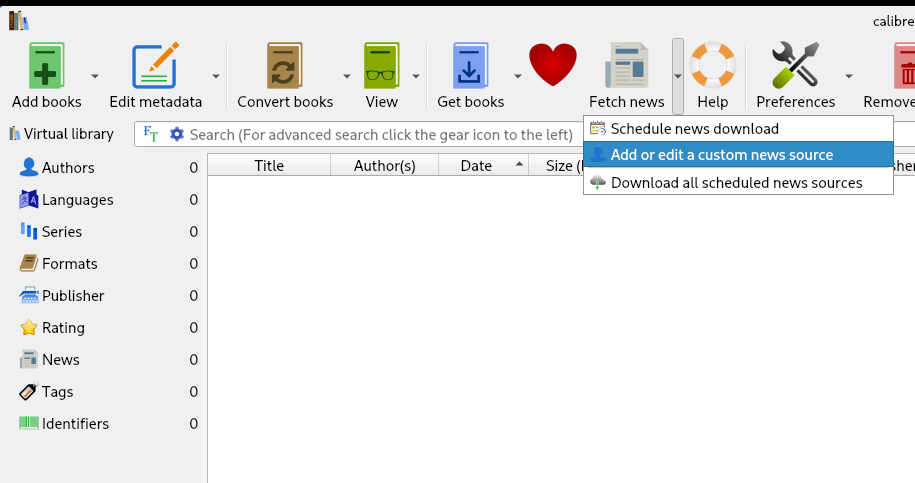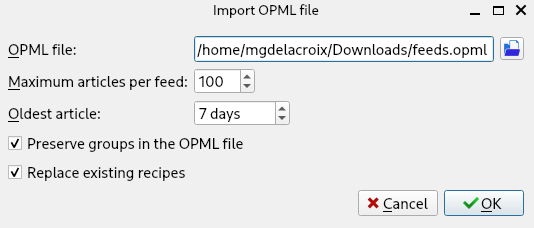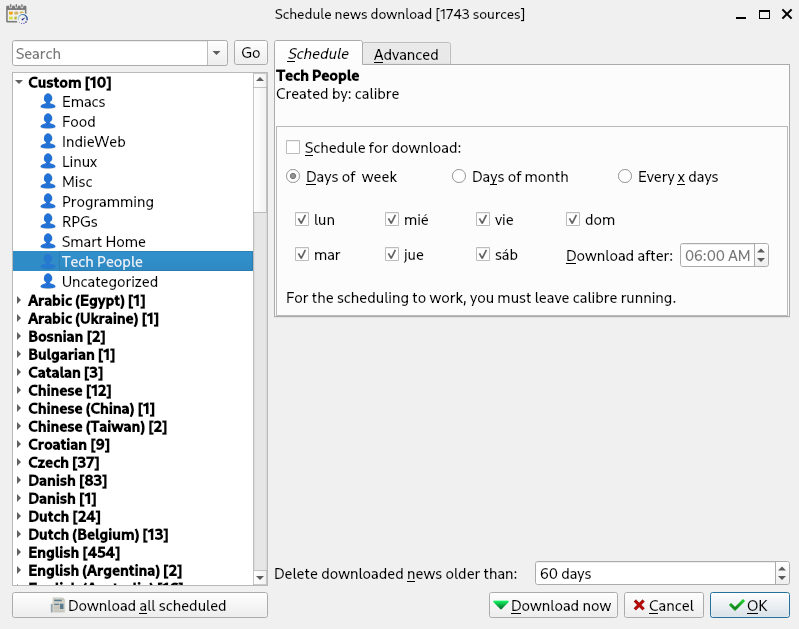Creating ebooks from your RSS feeds
Starting last year, I’ve been trying to move back to the Open Web, relying less and less on closed gardens and opaque technologies, and focusing my efforts and my online presence in open standards and small communities. This blog is a byproduct of that move, and me consuming news and information in general through RSS is another one.
I’ve always enjoyed RSS. It’s simple, easy to use, and back in the day it was everywhere. Every blog would have one if not multiple RSS feeds, every service worth their salt would generate RSS feeds for its content (think youtube, reddit, github…), innovation happened on top of the format (say podcasting) and one would end up with both a RSS reader full of articles to go through every day, and multiple automations processing updates through the format.
Things have changed a bit, services now don’t pay that much attention to RSS, most of them want you to use their apps to track and sell your information, and the fact that a huge chunk of internet revenue is driven by ads has forced a subset of the most obvious users of the format (like newspapers or even some blogs) to close their feeds, either by making them private or by giving you the headline of the article and a link to see the full content (plus ads, loads of them, maybe even a paywall) on their site.
RSS is still extremely popular amongst blogs and Open Web sites tho, so when I started this move one of the first things I installed was Miniflux, a fast, simple and robust RSS reader. It works great and allows me to read both from my computer and my mobile devices, but having an ebook I wanted to try and centralise my reading directly on that device.
Turns out that there is a quick and easy way of creating ebooks from your RSS feeds using Calibre. You just need to export your feeds from your reader as an OPML file, and import them into the tool as new sources.

If you have already imported your feeds, you can skip this next step, but the first time you follow this process or when your feeds change because you added or removed some, you need ot import the OPML file into Calibre.

You can then configure how many articles and how far back the tool will go when fetching the data from your feeds. By default, the generated ebooks will contain up to 100 articles per feed, and the last seven days of content from those feeds. For me the default values are fine, but you can tweak them if you prefer to have a customized “daily newspaper” out of your feeds, for example, instead of a weekly one.

After the OPML import finishes, you’ll find several new recipes inside the custom category, one per group on your feed export. To generate an ebook for one of them, simply select it and click the “Download now” button.

When the job is completed, you should see a new book in the tool that you can then convert to the format you want to use, transfer to your device, and enjoy in gorgeous and crispy e-ink, 100% distraction free.